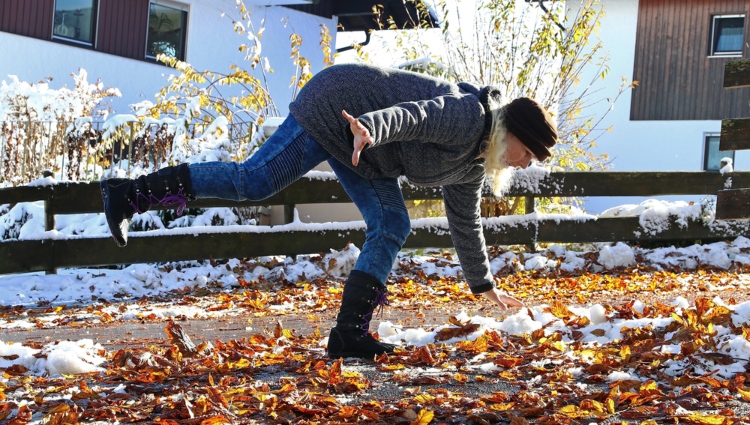
Did you know that one in four people age 65 years or older falls each year? Often, these falls result in hip fractures, broken bones, and head injuries. Fall-related injuries can also be the start of a more serious health issue that can carry a heavy quality of life impact, such as long-term disabilities that reduce one’s independence. They are also the leading cause of both fatal and nonfatal injuries for this age group.
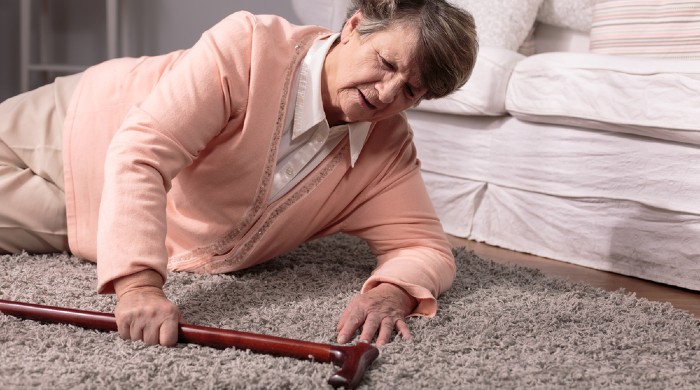
Many slip, trip, and fall accidents result in minor injuries, a sprain, a laceration, bruises. We do not always think of these types of accidents resulting in serious injuries yet serious falls are most common in the elderly, those over age 65.
If you are not aware of the dangers of slip, trip and fall accidents, these statistics and facts will help educate and inform you about the potential dangers.
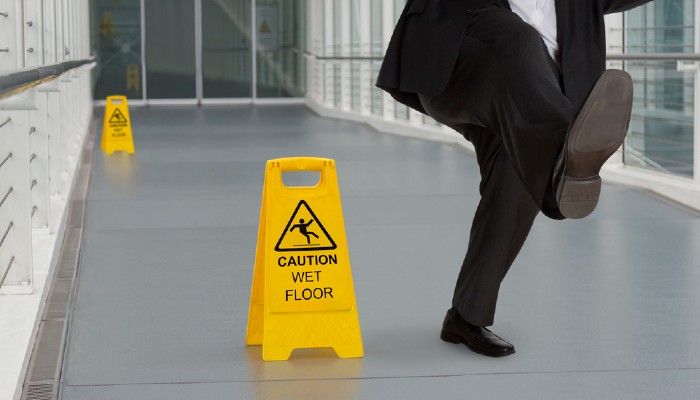
Published on May 1, 2023 • Updated on February 13, 2026
Whether it’s a spill, a freshly mopped surface, rain tracked indoors, or snow and ice brought in during Missouri’s harsh winter months, wet floors pose a serious slip‑and‑fall hazard. What seems like a routine, everyday situation can quickly lead to injuries ranging from minor bruises to severe head trauma, broken bones, or long‑term complications.
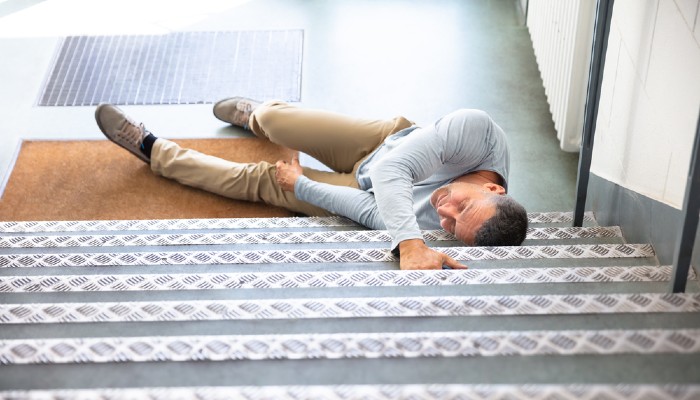
Slip and fall accidents can strike in virtually any setting—from bustling sidewalks and busy grocery aisles to quiet parking lots and private spaces like backyard pools. These unexpected falls can happen to anyone—regardless of age—and lead to anything from a few minor bruises to serious injuries like broken bones or traumatic brain injury.
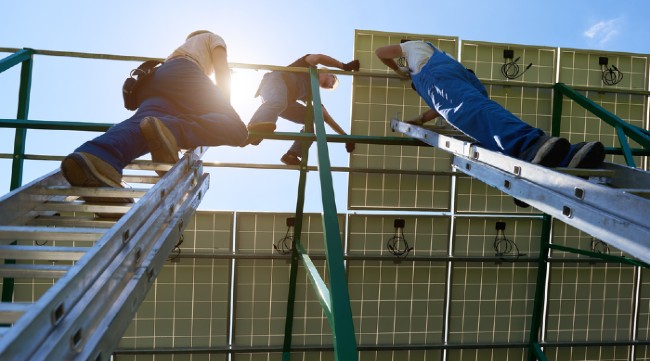
Falls happen for a variety of reasons in the workplace. Slippery work surfaces, unstable work platforms, unprotected holes, falls from ladders. In fact, falling from a ladder is one of the most common types of work accidents, especially in the construction industry (where falls happen to be a leading cause of death).
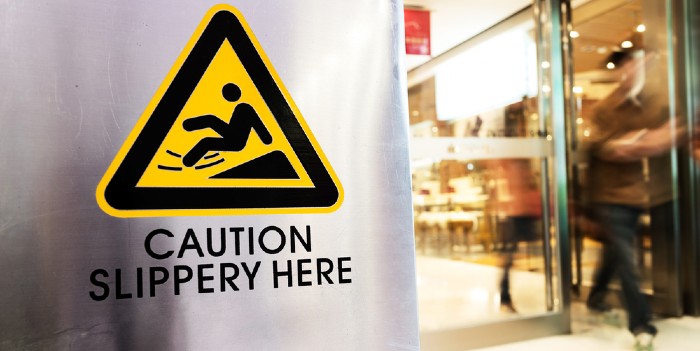
Falls are the second leading cause of unintentional injury deaths worldwide, with around 8 million people visiting hospitals each year because of injuries caused by them. In 2023 alone, 47,026 people died from falls at home and in the workplace (Injury Facts®).
These accidents often lead to serious, life‑altering injuries such as traumatic brain injuries, spinal cord injuries, broken hips or pelvis, shoulder and neck injuries, and more.
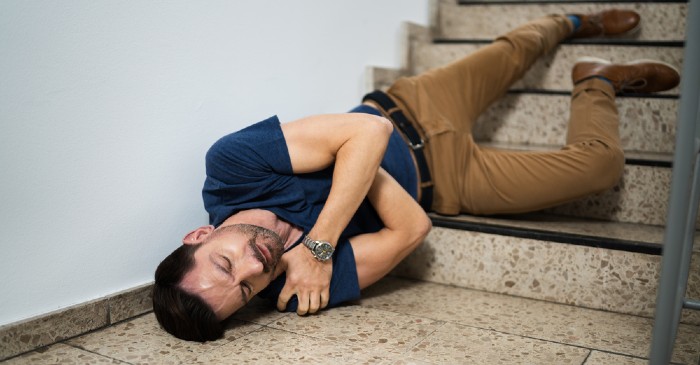
Slip, trip, and fall accidents happen more often than many realize. While many result in what seem like minor injuries—such as bruises, sprains, or small cuts—these incidents remain one of the leading causes of injury in the United States and can result in life-altering or even fatal injuries.
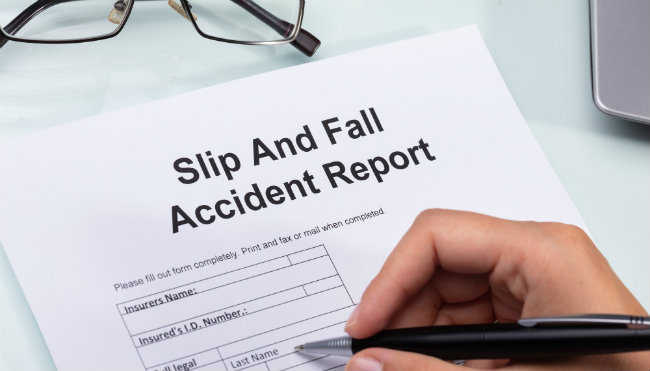
Slip, trip, and fall accidents can happen anywhere – while shopping at a retail store, walking through a parking lot, visiting a friend’s home, or navigating an office building. All of these places – buildings, homes, parking lots, and even walkways – are supposed to be maintained to ensure the safety of those using them. If they are not, and you have a slip and fall accident due to the owner’s negligence, you may have a premises liability case.
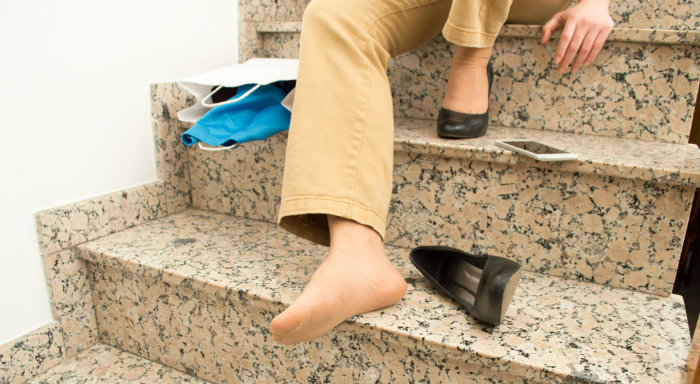
Published on June 10, 2019 • Updated on February 13, 2026
Slip and trip accidents while going up or down the stairs can result in serious injuries. When you add height, the repeated impact of multiple stairs, and unsafe conditions, the dangers of stairs multiply.
Slip and trip accidents can result from hazards such as:
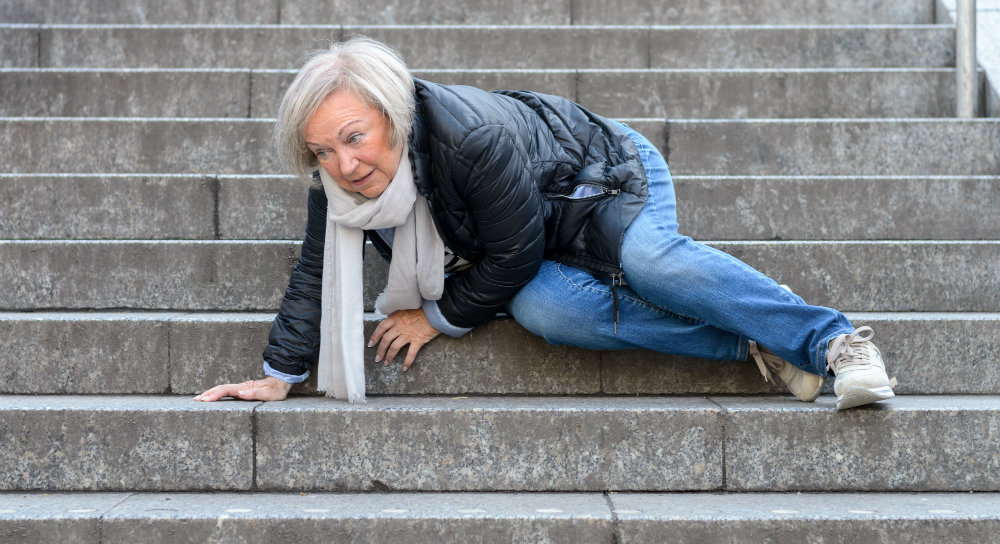
Slip and fall accidents can happen at any time and any place. Sometimes it is just that, an accident plain and simple. Other times, it may be due to the negligence of another party. Whatever the cause, the elderly – those 65 and older – are at a greater risk to fall and suffer a serious, sometimes life-threatening, injury.
Elderly: 29 million falls. 800,000 hospitalizations. 28,000 deaths. Share on X